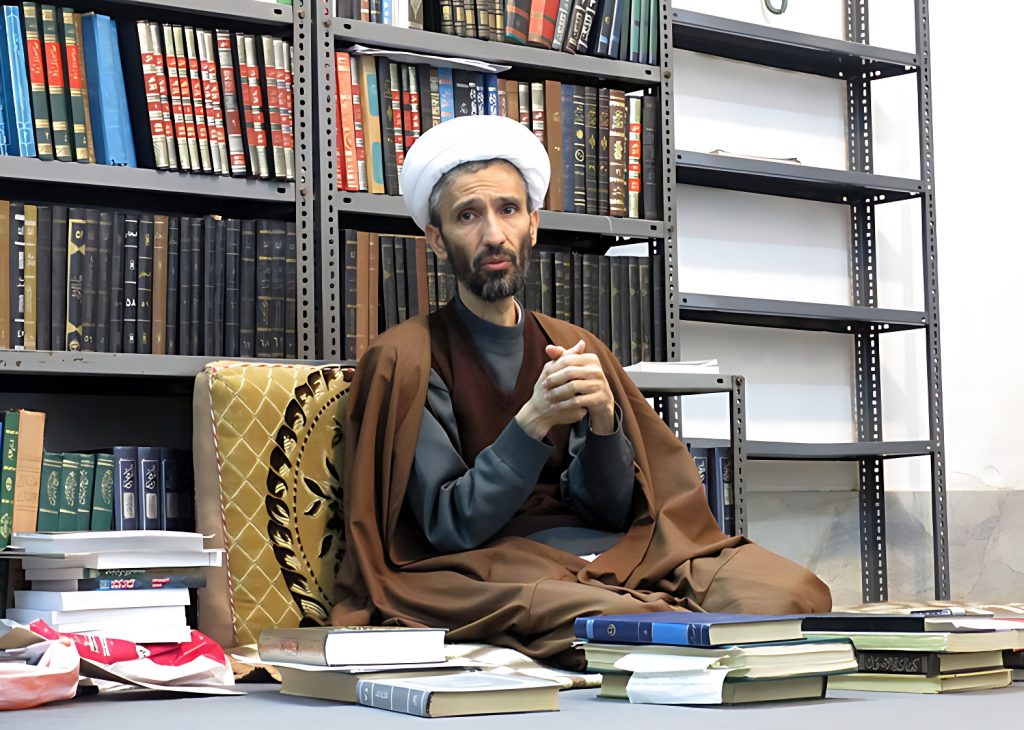Course Overview
Course Subject: Jurisprudence of Artificial Intelligence
Instructor: Shaykh Ḥusayn Mufīdī Yazdī
Day and Time: Thursdays, 11-12 a.m.
Location: No. 33, 6th Alley, Shahīd Qaranī Blvd., Imām Ḥusayn St., Zanbīl Ābād, Qom, Iran
Course in Social Media: https://eitaa.com/almabahes
About the Course
Artificial intelligence is a branch of computer science with the aim of making computers intelligent in order to achieve similar or superior performance to humans. The ever-increasing developments in the field of artificial intelligence have challenged scientists in various fields and raised many questions in various fields. In the religious field, artificial intelligence, due to the new capacities it creates in describing, analyzing and controlling human behavior, and through the tremendous effects it has on the individual and social lives of humans, causes new questions to arise about the relationship between these phenomena and the goals of religion. Therefore, despite the novelty of the subject in terms of theory and its components, the need to know the phenomenon of artificial intelligence, as well as to examine and describe it with an Islamic approach, and to adapt it to the religious culture and values, is considered one of the main needs of Muslim scholars.

In recent years, Shiite scholars have conducted many studies on the relationship between artificial intelligence and religious sciences, including jurisprudence. One of the important issues is the possibility of using this phenomenon in various matters related to ijtihād, such as data collection and analysis. Basically, the duties of a jurist are education, research, preaching (tablīgh), giving fatwās and judging, and artificial intelligence can create transformation in all these dimensions. Based on this, in recent years, advanced courses of jurisprudence on issues related to artificial intelligence have been held by Shiʿa scholars in Islamic Seminaries in different city, most notably in Qom, such as the role of artificial intelligence in education and training by Ayatollah Aʿrāfī, the role of artificial intelligence in stock market transactions by Shaykh Hādī ʿAbbāsī Khurāsānī, judging based on artificial intelligence by Ayatollah Abū al-Qāsim ʿAlīdūst, and the jurisprudence of artificial intelligence by Shaykh Ḥusayn Mufīdī Yazdī.

According to Shaykh Ḥusayn Mufīdī Yazdī in the initial sessions of his advanced course of the jurisprudence of artificial intelligence in 2023, the main theme of this course is responsibility and artificial intelligence. This issue can have two scenarios. In the first scenario, the function of artificial intelligence is simply to program a machine like a robot. Now, if this robot, whose work is based on artificial intelligence and programmed by an engineer, kills someone, who is responsible? In the second scenario, the robot’s capability goes one step forward, meaning that the robot has passed the Turing test and learned tricks by itself without being guided by the programmer and, for example, designs the armed robbery algorithm and kills someone during it. In this scenario, who is responsible to be held accountable? What will be investigated in this course from the point of view of jurisprudence and based on sources and evidence is the second scenario. Some of the topics raised in the first three sessions are the possibility or impossibility of assigning responsibility to artificial intelligence, the impossibility of realizing self-aware general artificial intelligence in silicon computers, the possibility of realizing behavioral general artificial intelligence and its success in the Turing test, biological and quantum computers, jurisprudence of artificial intelligence responsibility, Chinese room and the negation of the intention from artificial intelligence, soft and hard computational intelligence in Islamic studies, and physicalism as a continuation of materialism.
About the Instructor

Shaykh Ḥusayn Mufīdī Yazdī is one the contemporary Shiʿa scholars in various fields of religious studies, including jurisprudence, principles of jurisprudence, spirituality, and Qurʾānic studies, and he has been educating many students in all these fields in the city of Qom. He usually holds his classes at his home. He also specializes in mathematics and astronomy and has his own approach in the interpretation (tafsīr) of the Qurʾān and different recitations (qirāʾāt) of the Qurʾān and has presented his views in various scientific meetings about the authenticity of different recitations of the Qurʾān. Among his teachers, mention can be made of Ayatollah Bahjat and ʿAllāma Ḥasanzada Āmulī. His expertise in mathematics and information technology has drawn the attention of many students to his course on the jurisprudence of artificial intelligence.
